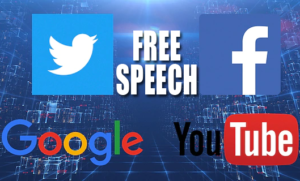Breitbart Business Digest: China Tariffs Will Not Push Up Walmart’s Prices
The woes of Target hold a message for anyone who thinks that Walmart will raise its prices in reaction to tariffs President-elect Donald Trump is likely to raise on imports from China. The post Breitbart Business Digest: China Tariffs Will Not Push Up Walmart’s Prices appeared first on Breitbart.

 Bugle Call supports the protection of our civil liberties under the Constitution and the Bill of Rights. We have a particular focus on the First Amendment which embodies the liberty of free expression through speech and the media, freedom of religious belief and practice, freedom of political belief, and the right for peaceful assembly to appeal to the government to modify policies and eradicate injustices. We are advocates for repealing or modifying the protections afforded to Big Tech and the social media platforms under Section 230 of the Communications and Decency Act as we maintain that these behemoth organizations have exploited these protections to censor and suppress the voices of conservative organizations and individuals.
Bugle Call supports the protection of our civil liberties under the Constitution and the Bill of Rights. We have a particular focus on the First Amendment which embodies the liberty of free expression through speech and the media, freedom of religious belief and practice, freedom of political belief, and the right for peaceful assembly to appeal to the government to modify policies and eradicate injustices. We are advocates for repealing or modifying the protections afforded to Big Tech and the social media platforms under Section 230 of the Communications and Decency Act as we maintain that these behemoth organizations have exploited these protections to censor and suppress the voices of conservative organizations and individuals.

